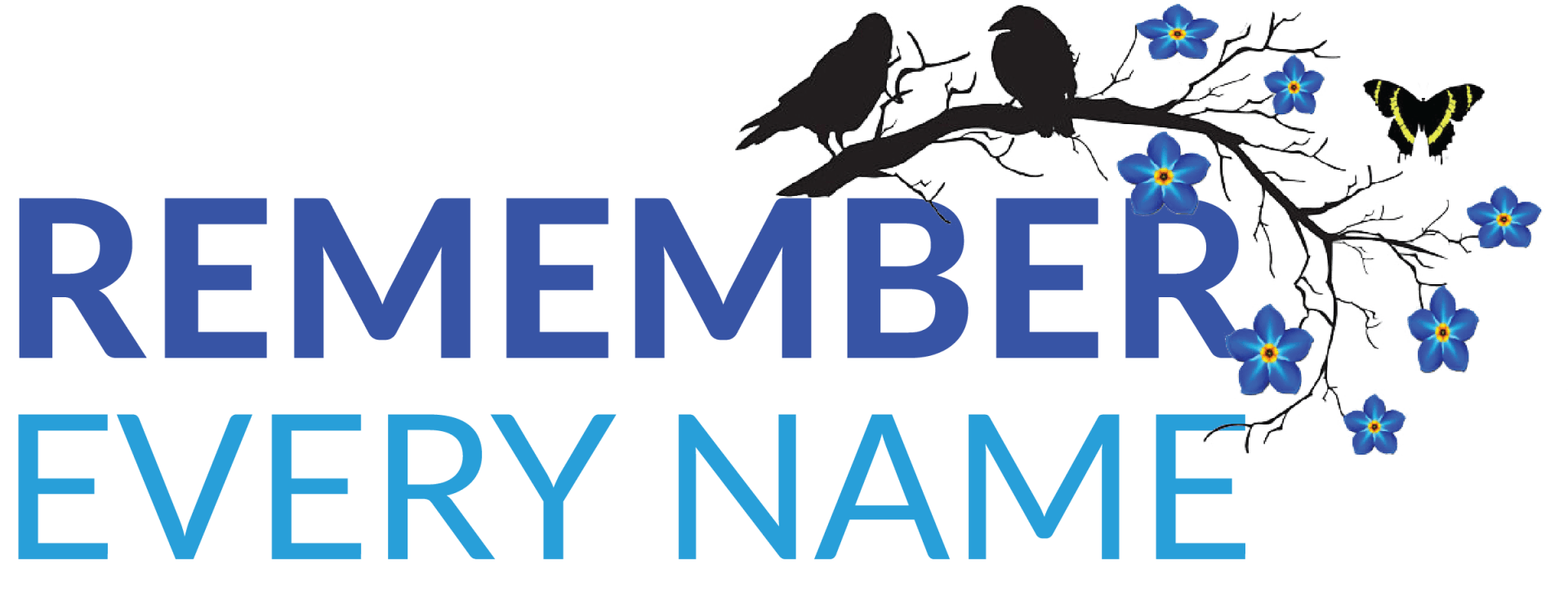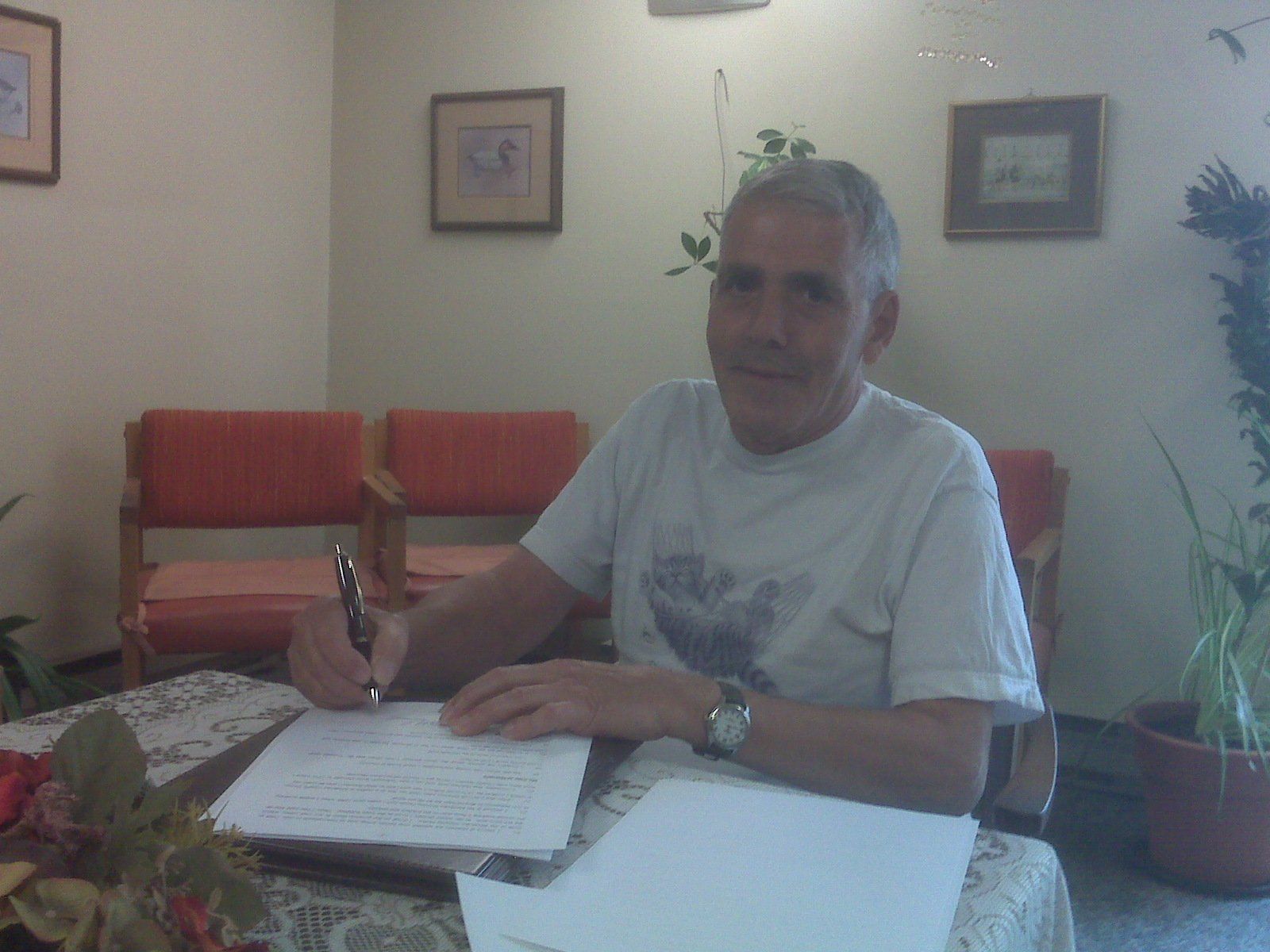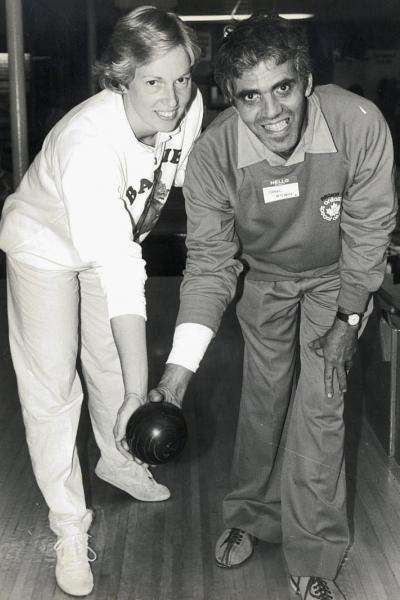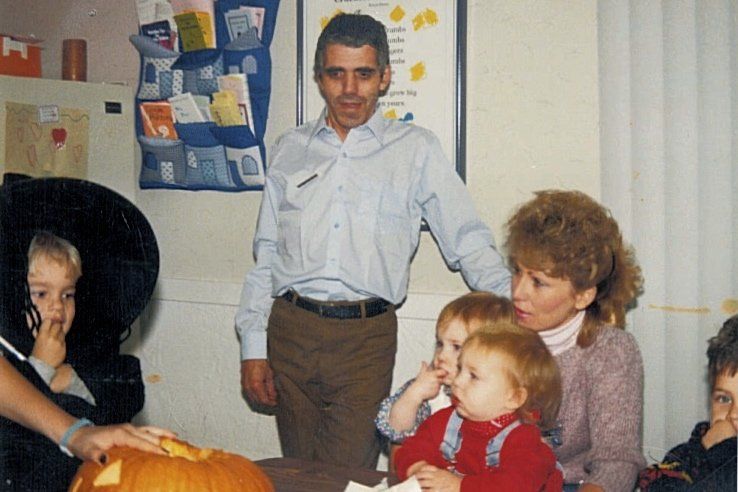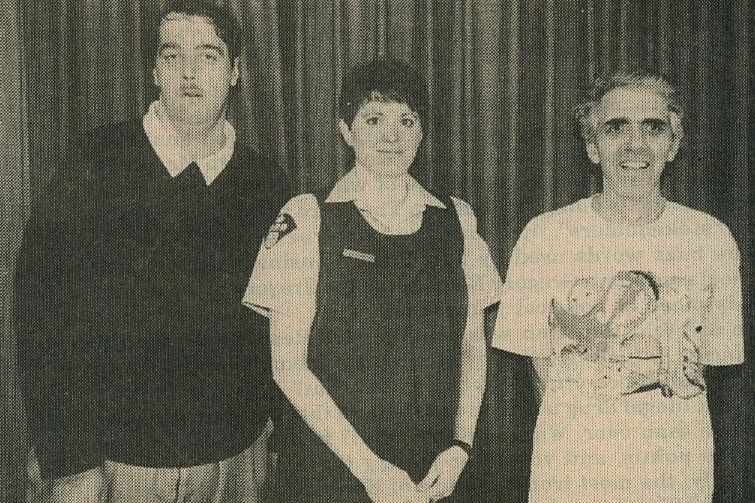Paul's Story
Written by the late Paul Nichol in his words
I was born in Mississauga in 1941. I didn’t know my mother very well because I was taken away from her when I was two months old by the Children’s Aid Society. She was told she shouldn’t have four children, that she couldn’t look after us all on her own so I was sent away to live in a foster home and another two other homes after that one.
My mother couldn’t find me and they didn’t want her to be bothering with me so they didn’t tell her where I was. My mother was able to keep the two girls- both were older than I but me and my brother Peter had to go. Peter was my twin brother. He went to a boy’s home and I went to Orillia to the Ontario Hospital School in 1947 when I was six years old. I never saw my brother again until 1959.
My first memories of the Ontario Hospital School, later called Huronia Regional Centre or HRC when I first moved in I was in a big playroom with a whole bunch of kids and we were all locked in there because they didn’t want us all in the way. I slept in a big room in the “Boys Hospital B” ward and shared the room with many other boys my age with no privacy or personal belongings. Life was very wicked and scary. If you did something wrong the staff would hand me my own toothbrush and make me scrub the floors with it. That was my week’s worth of punishment.
When I got older I then was sent to “D” cottage to go to school. That was the worst experience. I was moved to “D 3” when I was 10 years old. While I lived there I witnessed another boy who was 15 years old and lived on “D1” killed by a male staff member. The boy wouldn’t go back to his ward. He was dressed in his nightgown as punishment and he wanted to go for his breakfast but the staff wasn’t going to allow him into the dining room dressed in his nightgown. The boy refused to go back to the ward because he was hungry and because of this the staff banged the boys head against a big hot water coffee urn. The staff hit the boy’s head so hard against the urn, he died instantly. Everyone who was in the dining room saw this happen. The staff told us to keep our mouths shut and chased us out of the dining room fast. We never saw him again. There was no funeral or service; they just buried him across on the farm side in an unmarked grave. There was no investigation that followed his death. Many years after in 1987 the family tried to investigate the boys death but the staff who was suppose to go to court died. The investigation was dropped. My friend Clifford Ruppert lived with me at HRC and witnessed the killing passed away in 2007. We never had our day in court.
While living at “D” cottage I had some nasty things happen to me. I was made to lay down on the floor along with other boys with just a nightgown on and we were ordered by the staff to smell each others butts. This happened once in awhile for the staff’s entertainment and while we were waiting for the doctor to arrive for our check ups.
Other times the staff would use the rad brushes to hit us with to get us to smarten up. This would happen during the day while we sat in the day room doing nothing and were punished for moving our heads. I went to school in the morning and I was part of a group numbered from 1 to 24. I have no idea what the group numbers meant- it wasn’t done in grades. The teachers had room set up in the Administration Building on the main floor. If we did something wrong we were hit on the hands with a ruler or a stick. I didn’t learn anything there but learned how to read in later years when I joined the Adult Literacy Program. I finished in Group 24 but never graduated or learned how to read and write. I learned about money if I wanted to get out of HRC.
In 1960 I moved to Meaford. It was a social worker - Miss Margaret at HRC who decided I should go there to work on a fruit farm. I was 19 years old and could hardly wait to get out of HRC and this was my first taste of freedom from the institution. I was moved into a family home where two other men from HRC lived there with a family. The three of us men shared one big room to sleep in at night. During the day we cleaned different peoples houses around Meaford for a dollar a day. We had to put our money we earned into a jar with our names on it and it was used by the wife to purchase things we needed. I was not allowed to keep my own money- the little I earned that time.
I lived there until 1967 when HRC wanted to send me to another institution in Owen Sound because the women who ran the home I lived at wanted to retire. I didn’t want to go there where because I didn’t want to go to another institution to be locked up and my I freedom taken away from me, what little freedom I had. Because I didn’t want to go, I was sent back to HRC and lived there for two days before I was sent to a farm in Stroud.
On this farm they raised cattle. I was made to work cleaning stables and taking care of the chicken coupe. I worked from morning until night working and I paid $5.00 a week. This money I was allowed to keep but I was working long and hard hours at slave labor. When the owners went away I was left in charge of the farm and all it’s livestock and responsibilities.. I had no help with the work and worked alone. The owners were in charge of milking the cows. I was left doing the rest of the work. I stayed for a month when the owners got rid of me and wanted another man to work there instead of me.
I went back to HRC and lived there for a week before they sent me to another farm in Beaverton. I was made to work again at a cattle farm where I was in charge of cleaning stalls and helping bring in the hay. I was paid $5.00 a week for working from sun up to sun down. I stayed for there for a month before they discovered I had allergies to hay so they had to get rid of me.
I went back to HRC for a year before I was moved to Gravenhurst in July 1968 to work at the Muskoka Nursing Home and lived on grounds in a little cabin. In the winter we lived in the main building because there was no heat in the cabins. I worked odd jobs in the kitchen and laundry room eight hours a day. I was paid $66.00 a month with no medical or dental benefits. I worked there for 12 years until 1980 before I was laid off when new owners took over.
While I worked at the Muskoka Nursing Home there were other people living there who had developmental disabilities and that’s where I met Clifford. Living conditions were very poor where people had nothing to do all day. A few years later the government realized it was not the right place for these people and moved them all out. I kept in touch with Clifford and we were friends before he passed away.
After I was laid off at the nursing home I then went to work at ARC Industries in Bracebridge in 1982. I worked for $5.00 a week putting together muffler clamps and putting them in boxes. There was other contract work to do putting things together where we were paid pennies a day. The conditions were not good. The wages were poor and the assembly work boring with the same thing everyday. The staff who worked there were easy to get along with. I worked there for short period before I worked for a shoe store cleaning the shop. I was paid the same amount of money because it was still part of ARC Industries and they wanted to see if I could hold a job in the community despite my previous experiences working for other people. I was being taken advantage of because I was stuck in this program and the shop owner didn’t have to pay me full wages. While I worked at ARC Industries I lived in my own apartment and received ODSP to supplement my poor income. While I lived on my own I had a worker who visited me to help me with my bills and making sure I was paying on time. Through the ODSP office they would send me to different job placements to work.
From the shoe store I went to work at Muskoka Centre in Gravenhurst to work in janitorial but I was sent to work in a nursing home in Orillia. I was paid $60 every two weeks to clean the rooms and carry out janitorial work. That job only lasted two weeks because the owner didn’t want to be part of the employment program anymore.
I then came back to Gravenhurst to work in a small plant where they made wooden tables and chairs, and fireplace mantles. I worked there for a whole year earning minimum wage. The owner was giving it up his business so then I went to work at Sloan’s Restaurant cleaning floors. That lasted for two months before I was sent to Muskoka Family Focus as their janitor. This was the longest job I had through ODSP lasting 14 years. I was paid minimum wages there and the people treated me like family. I was 60 years old and getting too old for the job so they laid me off because they wanted some younger and stronger.
After that I went into retirement helping with the local food baskets and I am in the Literacy program. I tried to start a People First chapter in my town but didn’t get enough support behind me to continue. I did help a friend get out of special needs home while I was involved with the People First movement. I live in my own apartment in a geared to income unit and have lived in the same place for 16 years with my late wife Phyllis. Were married in 1977 and met her while working at the Muskoka Nursing Home and she also lived at HRC.
In later years when I was in my 40’s I found my mom again through the help of one of my workers. She was still living in Mississauga where I was able to visit her. She was happy to see me and was able to find my brother Peter whom she found first living in Mississauga. We kept in touch but she passed away in poverty a few years later. It was hard to loose her again.
Life was horrible when I was young but through my determination and will power to break free from the horrendous miseries and abuse I had to endure I have been able to move on and find all the good things in life. My hope is that there will be a class action against the Ontario government and that I will have my day in court to talk about the injustices I have witnessed living in an institution.
